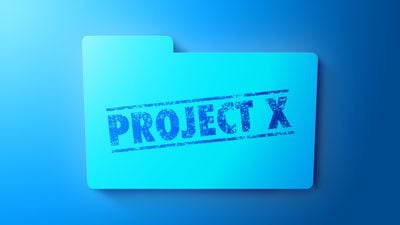Last month, Apple filed a lawsuit against Simon Lancaster, a former employee who allegedly used his senior position within the company to steal "sensitive trade secret information" that he then provided to a reporter.

Lancaster responded to the complaint this week in California court. In his formal answer, obtained by MacRumors, Lancaster denied that he abused his position and trust within the company, systematically disseminated Apple's trade secret information, or improperly used his seniority to gain access to internal meetings and documents.
Lancaster admitted that he did communicate with a tech reporter "regarding Apple products and workplace issues he considered to be of public concern," but he denied that he was a "source" for "unspecified" articles published by the reporter:
Lancaster admits that he communicated with a reporter covering technology issues regarding Apple products and workplace issues he considered to be of public concern – namely, alleged corruption within Apple's supply chain and among Apple's supply chain managers. Lancaster lacks sufficient knowledge or information to admit or deny the allegations contained in Paragraph 2 of the Complaint that he was a "source" for unspecified "articles" published by the reporter, and denies those allegations of Paragraph 2 on that basis.
In particular, Lancaster said that he exchanged direct messages with a reporter in November 2018, with communication continuing into 2019. Lancaster also revealed that he met "socially" with the reporter in person on or around September 3, 2019, including "for reasons that had nothing to do with Apple."
Lancaster confirmed that he attended a large company event at Apple's headquarters in October 2019, after receiving an email invitation from Apple to attend the meeting. During the event, Lancaster received a text message from a superior asking him to leave the event, at which point he immediately left, according to his answer. Apple alleged that this company event discussed "sensitive trade secret information," including "Project X."
Lancaster indicated that his final day of employment at Apple was November 1, 2019, and that late in the evening on that day, he logged on to Apple's system to "send farewell emails to his colleagues." Lancaster denied that he downloaded confidential information to assist his new employer, as alleged in Apple's complaint.
Lancaster admits that after he resigned his employment with Apple, he began working at a company that served as a vendor for Apple. Lancaster denies that any conduct by him has created any harm or damage to Apple, and specifically denies that he ever used any Apple information either for the benefit of his new employer or in connection with his subsequent employment.
Lancaster admitted that, in October 2019, he proposed writing a story to the reporter about his departure from Apple. He also revealed that he continued to communicate with the reporter regarding Apple products after he announced his resignation.
In his answer, Lancaster goes on to admit that he requested that the reporter publish stories favorable to a startup in which he had invested, but denied that such requests were in exchange for any information discussed with the reporter or had any relationship to Apple confidential information.
Lancaster ultimately denied many of Apple's allegations "on the ground that he lacks sufficient knowledge or information to admit or deny them and/or on the ground that they state legal conclusions to which no response is required."
We've embedded Lancaster's full answer below with more details. As with Apple's original complaint, it's a fascinating read that provides a closer look at Apple's culture of secrecy and the efforts that the company takes to protect its intellectual property.























